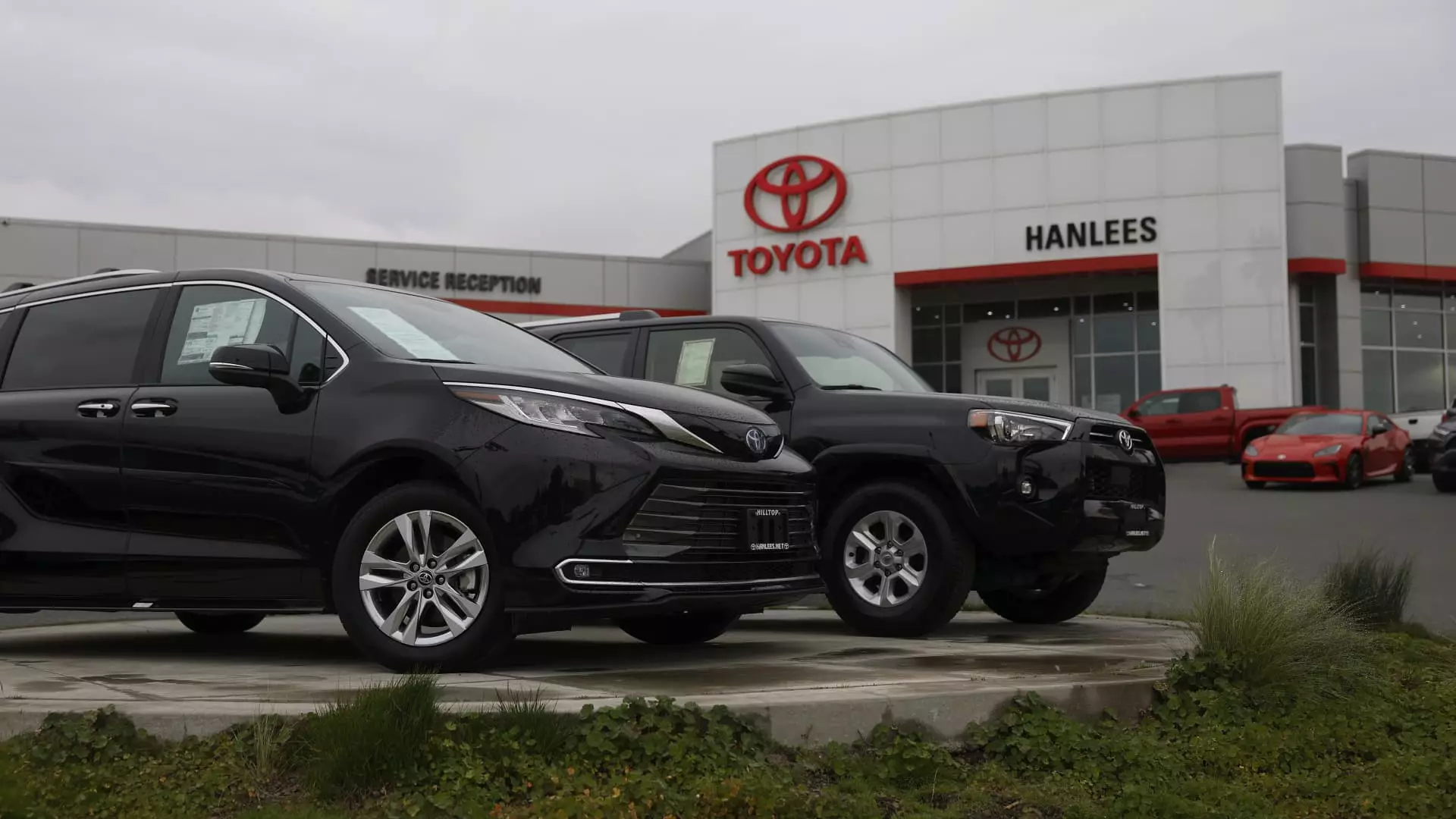With a single stroke of his pen, President Donald Trump has unleashed chaos in the automotive world by announcing a staggering 25% tariff on imports of vehicles “not made in the U.S.” This decision, designed ostensibly to prioritize American labor and industry, has left Asian automakers reeling and contemplating their next moves in a shifting landscape where market realities clash with political aspirations. Investors are distraught, stock prices have plummeted, and the previously flourishing ties between the U.S. and Asian auto industries now hang in the balance.
The ramifications of this impulsive policy extend far beyond boardroom discussions; they strike at the very heart of consumer economics. With manufacturers pivoting to assess the damage—and the markets watching closely—the impending tariffs pose not just a logistical nightmare but a severe threat to their viability in one of the world’s largest automotive markets.
The Unraveling of Established Giants
Toyota, Nissan, and Hyundai have seen their stock values tumble by significant margins—their losses emblematic of a shake-up that many foresaw but few were prepared for. In a shocking turn, Toyota experienced a staggering 9.4% decline, while Nissan and Hyundai followed suit. For these titans of industry, the U.S. market has not simply been profitable; it has been indispensable. Dominating the American automotive landscape, these companies have built complex supply chains that hinge on the free movement of goods across borders. But now, with tariffs looming, that very foundation is under siege, threatening to transform competitive edges into glaring vulnerabilities.
Market analysts like Vivek Vaidya, a global client leader at Frost & Sullivan, echo this sentiment, asserting that the U.S. is a crucial market for Asian automakers. With companies like Toyota shipping millions of vehicles to the U.S. annually, an abrupt shift in trade policy could spell disaster. Are these automotive giants truly equipped to absorb the shock, or will their determined efforts simply mask our loudening worries that the end is near?
Financial Underpinnings and Market Consequences
The importance of the U.S. market cannot be overstated; it’s a veritable goldmine for Asian manufacturers who understand the nuances of consumer preferences and trends. Collectively, these automakers represent six of the top eight car sales in the United States, a testament to their market dominance. In 2024 alone, the U.S. imported a whopping $474 billion worth of automotive-related products; a staggering figure that speaks volumes about the economic integration between American consumers and Asian manufacturers.
However, the looming tariffs raise profound questions about sustainability. Could companies such as Toyota and Hyundai, despite their extensive operations in the U.S., truly realign production capabilities overnight to offset the impact of tariffs? Joe McCabe, president and CEO of AutoForecast Solutions, rightly points out that manufacturing relocation isn’t a mere logistical exercise; it involves time, capital, and foresight. The reality is authentically grim: unless drastic steps are taken, the core principles of globalization and interconnectivity are in jeopardy.
The Bright Side? A Surprising Resilience
Amid this chaotic landscape, an unexpected silver lining appears for companies like Suzuki, which does not currently sell cars in the U.S. market. Suzuki’s unaffected stance has allowed it to thrive, showing a year-to-date gain while its competitors flounder in the wake of heavy losses. This begs the question—could Suzuki’s strategic positioning serve as a model for others seeking to navigate the stormy seas of trade policy?
Investors and analysts alike are left grappling with the dichotomy of options available to the major players. As portfolio manager Richard Kaye suggests, the decision to absorb costs versus passing them onto consumers will weigh heavily on these corporations. The looming potential for higher prices may dissuade buyers and dampen revenue—ultimately forcing companies to make tough choices about the future of their products and services.
A Call for Thoughtful Change
In a globally interconnected world, the repercussions of unilateral tariffs should serve as a cautionary tale. The automotive industry is not just a microcosm of international trade; it’s an embodiment of what can happen when protectionist policies take the helm. It’s imperative that we encourage dialogue among nations to pursue sound trade practices that prioritize workers while recognizing the significance of healthy competition and innovation. We are in a moment of reckoning—not just for Asian automakers, but for the global economy as a whole. The path forward requires nuanced thinking and a commitment to collaboration rather than discord.

Leave a Reply